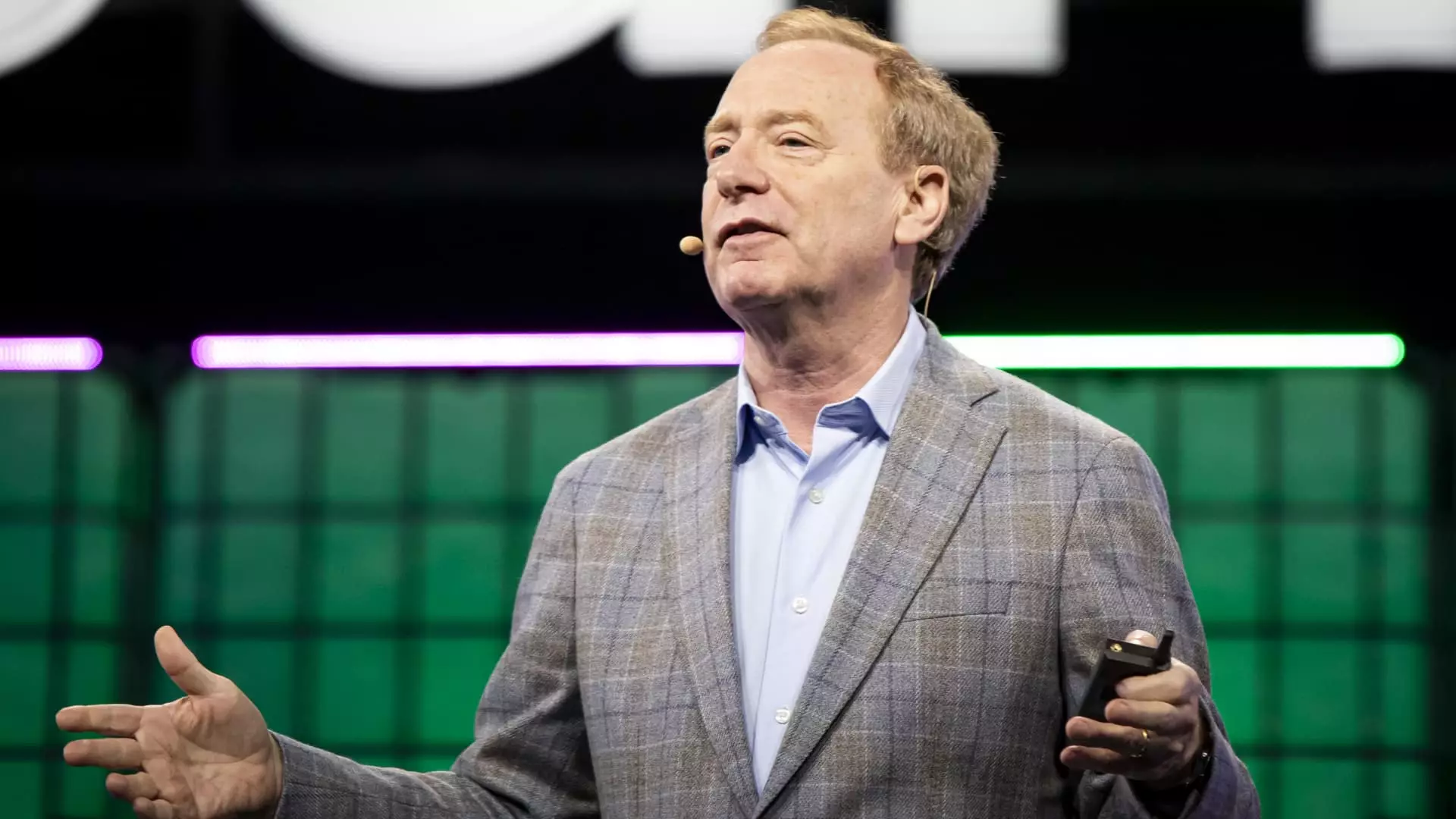In a significant strategic move, Microsoft has announced plans to allocate an impressive $80 billion for the development of data centers tailored to accommodate artificial intelligence (AI) workloads in the fiscal year 2025. This ambitious financial commitment underscores the company’s recognition of the escalating demand for AI technologies, especially in a landscape increasingly dominated by AI-driven applications. Notably, over half of this investment is projected to occur within the United States, reinforcing the nation’s position as a leader in the global tech arena.
As articulated by Brad Smith, Microsoft’s Vice Chair and President, the convergence of private sector investments and innovative endeavors across diverse American companies—from agile startups to established corporations—is propelling the United States ahead in the AI race. The partnership between Microsoft and OpenAI stands as a testament to this progress, showcasing the capability of firms to leverage cutting-edge AI models effectively. Moreover, other notable companies such as Anthropic and xAI exemplify the burgeoning ecosystem of AI development that is thriving in the U.S., thereby contributing to greater market competition.
The rapid evolution of AI technologies has sparked a race among leading tech corporations to secure Nvidia graphics processing units (GPUs), essential for training robust AI models. The arrival of OpenAI’s ChatGPT in late 2022 catalyzed this urgency, as companies vied to offer their distinct generative AI solutions. Microsoft’s considerable investment of over $13 billion in OpenAI, alongside the integration of AI functionalities into its products—such as Windows and Teams—exemplifies its proactive stance in this burgeoning field.
In the first quarter of fiscal 2025, Microsoft reported substantial capital expenditures totaling $20 billion, with a notable portion directed towards tangible assets and property. The growing demand for their cloud services, particularly Azure, is evident, reflecting a year-over-year revenue increase of 33%. This surge signifies a robust market appetite for AI services, accounting for a notable portion of Azure’s growth. Observations from CFO Amy Hood indicate that this upward trajectory in expenditures is set to continue, signaling Microsoft’s commitment to solidifying its presence in the AI domain.
As the global landscape shifts, Brad Smith has urged U.S. policymakers to bolster their support for the nation’s leadership in AI. Notably, he expressed concerns about China’s increasing competitiveness in the AI sector, where it has begun offering subsidized access to AI technologies to developing nations. Smith emphasized that the U.S. response should not be one of passive observation but rather a proactive strategy to ensure enduring leadership in AI innovation. This approach not only emphasizes technological advancements but also champions the promotion of American AI technologies on a global scale.
Microsoft’s extensive investment in AI infrastructure signifies a pivotal moment for the tech industry as a whole. With its ambitious plans for data centers and a focus on maintaining competitiveness against global rivals, Microsoft is not merely participating in the AI race—it is striving to lead it. As industries continue to integrate AI deeper into their frameworks, the coming years promise to shape the dynamics of how technology influences business, education, and society at large.

